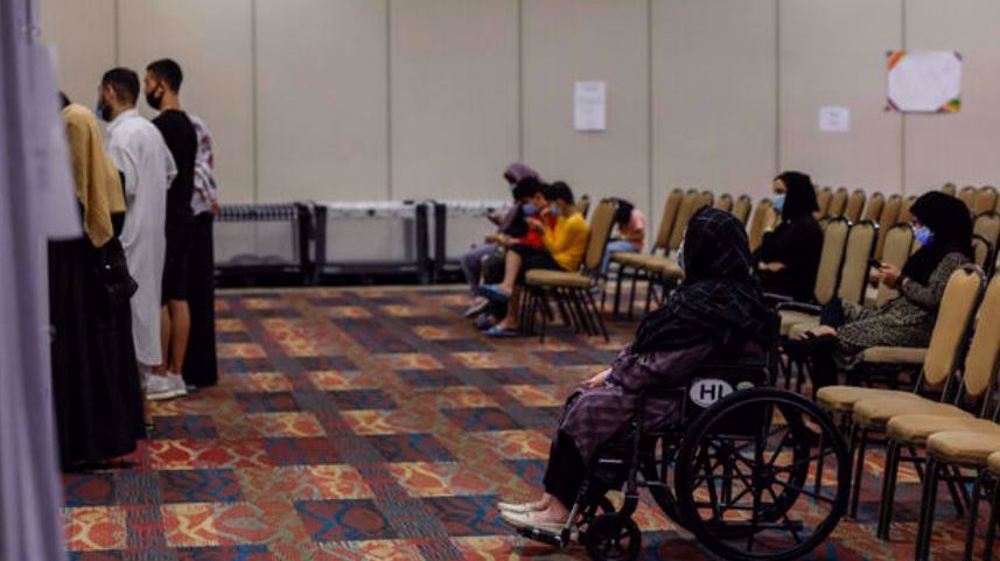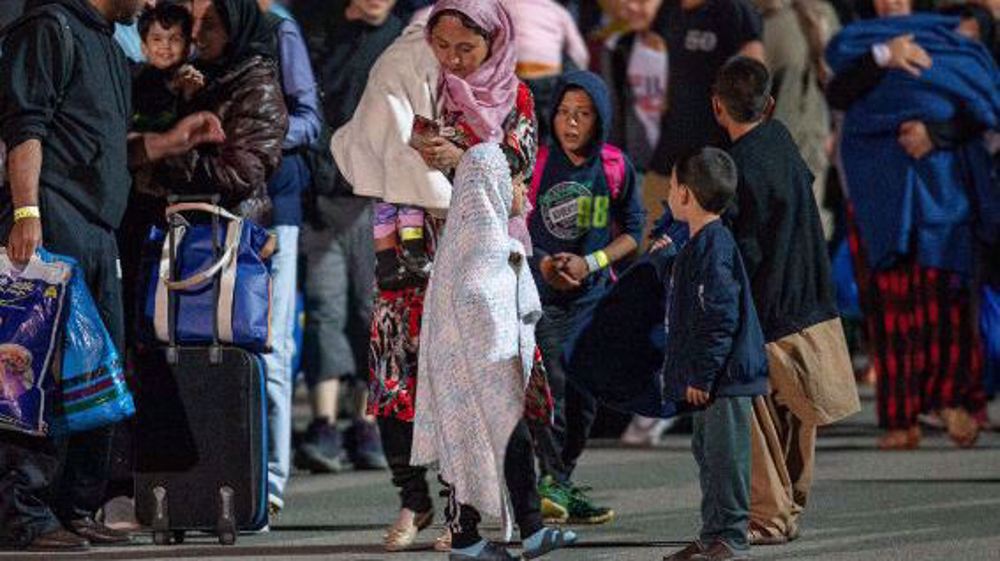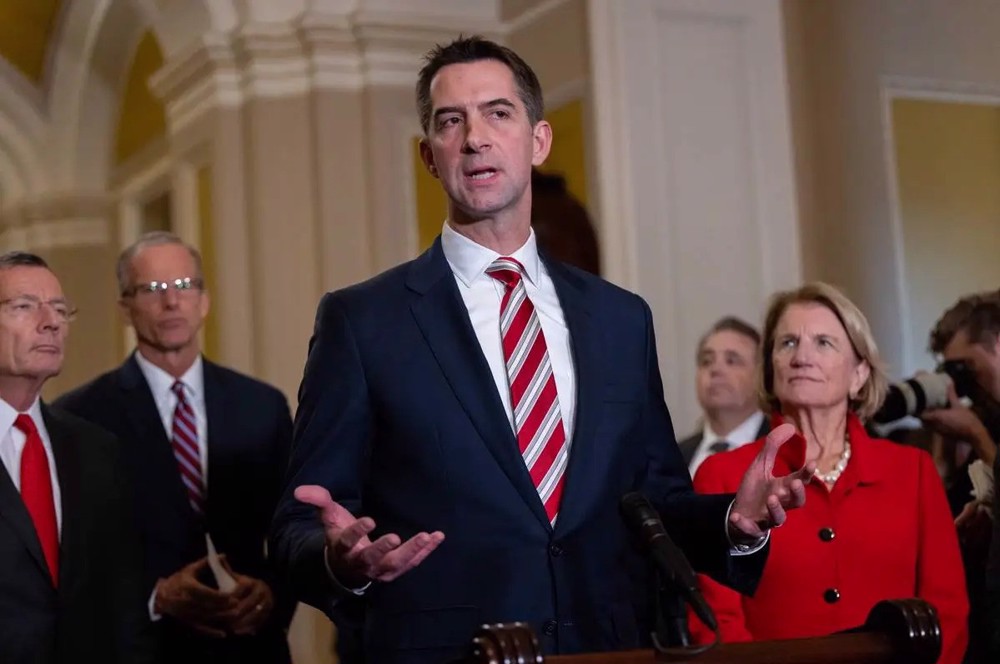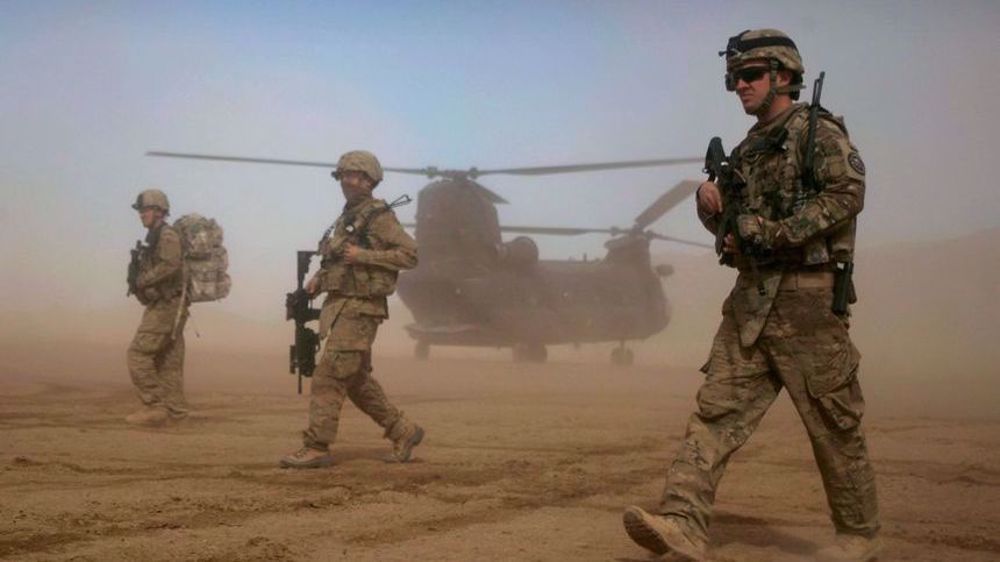US plans to send thousands of Afghan refugees to Philippines
Filipino lawmakers have agreed to consider a US-proposed plan to temporarily host Afghan refugees waiting for the processing of their citizenship to the United States.
The Philippine Senate's foreign relations committee will discuss the plan on Friday to temporarily house thousands of Afghans awaiting permanent resettlement in America.
There are approximately 88,500 Afghan nationals, who arrived on US military planes in the United States as part of Operation Allies Welcome (OAW) after fleeing Afghanistan, following the Taliban takeover of the country in August 2022 after 20 years of US-led Western forces occupation.
Afghan nationals who arrived in the US were those who either worked for the United States government or alongside US soldiers or were family members of those who did.
In October, according to Manila's envoy to Washington, the Philippines government had received a request from the United States to temporarily host the Afghans waiting for their citizenship to be processed.
Ambassador Jose Manuel Romualdez said in recent interviews with US media that under the US proposal, only those Afghan "allied partners and friends" who worked for the US government and those whose lives were in danger have been included in the plan.
"The US request is pure processing for Afghans and their families who worked with the US gov't in Afghanistan and whose lives are in danger," Romualdez said in a message.
"No Afghans will remain in the country once they are processed for US special immigrant visa," he added.
As part of the immigration regulations, Afghan nationals must undergo a rigorous, multi-layered screening and vetting process that includes biometric screenings using voiceprints, iris scans, palm prints and facial photos, and biographic screenings conducted by intelligence, law enforcement, and counterterrorism professionals from the Departments of Homeland Security, Defense, and State; the Federal Bureau of Investigation; the National Counterterrorism Center; and other agencies making up the US Intelligence Community.
Afghan nationals arriving in the US must also pass health tests and be vaccinated for various diseases and conditions prior to being relocated across the United States.
White House press secretary, Karine Jean-Pierre, said in mid-December it is "important to take care of Afghan allies who took care of us.”
Some US lawmakers had hoped to speed up the Afghan immigration process affecting tens of thousands of refugees who fled the Taliban more than two years ago and now live in the United States.
Others, particularly Republicans, say the screening system is not safe. They pointed to a September report from Homeland Security's inspector general that said at least two people from Afghanistan who were paroled into the country “posed a risk to national security and the safety of local communities.”
As a result, any effort made to resolve the Afghans' immigration issue has failed, causing ten-of-thousands of Afghans to live in uncertainty as an August deadline for action from Congress before their temporary parole status expires, gets nearer.
“We lost everything in Afghanistan," Mohammad Behzad Hakkak said. “And now, we don’t know about our future here.”
Hakkak is among those Afghans waiting for resolution, unable to work or settle down in his new community in Fairfax, Virginia, under his parole status.
He worked as a partner to the US mission in Afghanistan as a human rights representative in the now-defunct Afghan government.
Afghan nationals, who arrived in the US almost two years ago after the chaotic US military pullout from Afghanistan, had been promised a chance to start a new life in America as an act of gratitude to compensate for their services to the United States government since the occupation started in 2001.
How US abuses its UN veto power to enable Israel’s genocidal war on Gaza
Iran refutes US, UK accusations over Ukraine war, West Asia conflicts
Pakistani town erupts in protest after terrorists kill scores of Shia Muslims
US senator threatens ICC with military action over Netanyahu sentence
Iran: ICC indictment of Netanyahu should have included 'genocide'
VIDEO | IAEA anti-Iran resolution
Iran urges pope to help end Israeli onslaught in Gaza
VIDEO | ICC's warrant against Netanyahu













 This makes it easy to access the Press TV website
This makes it easy to access the Press TV website